Know Your Worth: The Ultimate Guide to Becoming More Self-Aware
If you want to be more self-aware, but have no idea where to start, this blog post is for you.
In it we’ll explore what makes a person self-aware and how they can become more in tune with their own thoughts and feelings. The hardest thing is ultimately knowing yourself and the question that is almost impossible to answer is – Who am I?
We’ll also go over some of the signs that indicate someone might not be as aware as they think they are.
Finally, we’ll end with a few personal tips on how to improve your own awareness.
So without further ado, let’s get started!

Don’t have time to read the whole guide right now?

No worries. Let me send you a copy so you can read it when it’s convenient for you. Just let me know where to send it (takes 5 seconds):
Contents

Chapter 1
Knowing Your Worth Starts With Self-Awareness

Chapter 2
Why Becoming Self-Aware is Difficult

Chapter 3
Why You Need to Be More Self Aware

Chapter 4
How to Let Things Go

Chapter 5
How to Cultivate Self-Awareness

Chapter 6
Know Yourself First, Then Know Your Worth

Chapter 7
Things You Realize Once You Know Your Worth

Bonus Chapter
17 Quotes on Knowing Your Worth and Self-Awareness to Inspire You
Chapter 1:
Knowing Your Worth Starts With Self-Awareness
What is self-awareness? If you’re like me, the first thing that comes to mind is not being able to tell what’s going on with your thoughts.
Many concepts of self-awareness and personal development mix equate with each other.
In this chapter, I’m going to share some insights on what self-awareness truly means so that you can gain more clarity.
Read on.

What is Self-Awareness?
There are two types of self-awareness: inner self-awareness and external self-awareness.
Inner self-awareness refers to how clearly you see our own values, passions and aspirations and how well they fit into your environment, as well as the impact they have on the people you are in contact with.
External self-awareness is an understanding of how others see us in the context of the above factors.
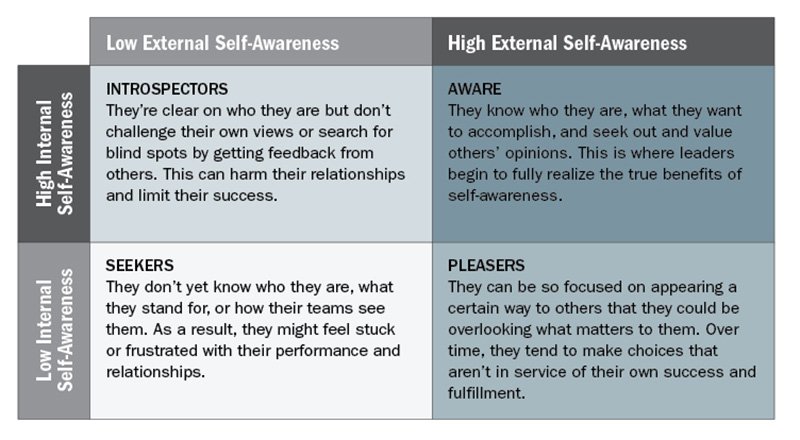
Self-awareness is the cornerstone or foundation, and it triggers all other abilities of emotional intelligence.
Because here’s the thing…
If you don’t know yourself, and if you don’t know precisely and clearly what you feel at all times, then how would you know the needs of others and understand what they actually feel?
The truth is, the more you know about yourself, your feelings and your own emotional reactions in certain situations, the better you will be able to control yourself and choose the way you behave in a given situation.
Discipline can be imposed on us from the outside, for example by people in high positions, such as professors or superiors.
One who experienced the consequences of his indiscipline as a child may have chosen not to accept authority as an adult. And if he has a strict superior, who meticulously values discipline, he can no longer hear that word.
So a new thought: Self-discipline is connected to your power! So, it’s basically something we call your free will.
The essence of free will is not the freedom with which we do what we want, but in power, to do what must be done, despite internal opposition.
In other words, self-awareness is all about the awareness and knowledge of where you are at the moment and where you want to be, such as your goal, and whether or not you are willing to change in order to achieve that goal.
Now you know what self-awareness is all about.
It’s now time to dive right into the challenges you might encounter once you begin the journey to becoming more self-aware.
Let’s dive right in.
Chapter 2:
Why Becoming Self-Aware is Difficult
It’s easy to think that the only reason it’s difficult to become self-aware is because you’re not trying hard enough.
But how do you know when you’ve tried hard enough? It can be difficult for people who are introverted, shy or have low self-esteem.
The thing is, there are many reasons why becoming self-aware can seem impossible.
In this chapter, we’ll talk about the few reasons why.
Keep reading.

Why Becoming Self-Aware is Difficult
The journey of becoming self-aware is not always an easy one.
It’s a process that takes time and patience, but the reward for your hard work is worth it.
To become more self-aware, you need to learn the difference between thoughts and feelings.
If you want to know yourself, you need to know the difference between “I think” and “I feel”.
Ask yourself every day how you feel and be honest about it.
If your heart is pounding and your face is flushed, and you feel like you’re running out of air, then it’s usually a sign of something, right?
Ask yourself, what feeling is behind it? Try to define that feeling as precisely as possible.
Is it fear, anxiety, love or anxiety?
When you reach that higher level of consciousness…
The level of self-consciousness, you become aware that you’re actually a complex spiritual being.
It is a supreme spiritual state: everything is in us and we are in everything.
It is a state in which everything is attainable, understandable and possible.
As you start to take note of how you’re feeling on a day-to-day basis, you may notice patterns in your mood swings.
Maybe there are some things that make you feel sad or angry more often than others?
Once this becomes clear to you, it will be easier to pinpoint what triggers these feelings.
You have probably already encountered the following situation yourself: At the beginning of a new project, goal or endeavor, you threw yourself into a job full of enthusiasm. But after a promising start, your energy subsidies and you procrastinate with solving tasks or solve them only halfway.
So it is not surprising that many struggle with self-discipline.
Below we bring you information and suggestions on what discipline really is and why we have difficulty being disciplined. Because knowledge about it facilitates the development of effective countermeasures. Finally, we will introduce you to a couple of practical tips on how to discipline yourself in the future.
Here’s a few reasons why becoming self-aware is difficult for so many of us:
1. Your mood changes constantly, and you just don’t know how to manage it.
An African proverb once said, “if there are no enemies inside, then the enemies outside can do nothing.”
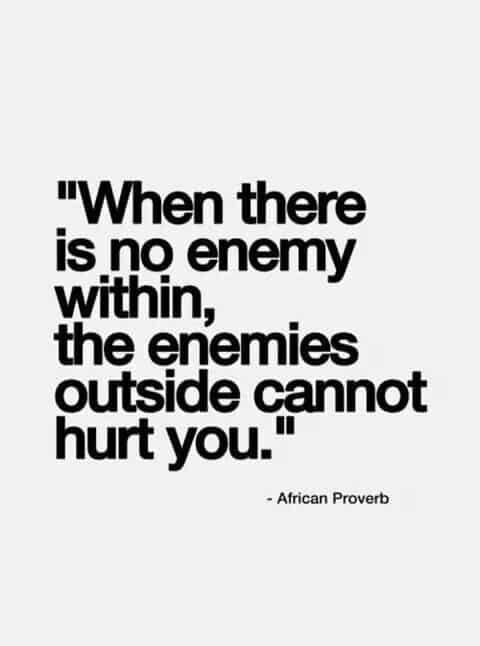
And I stand by that quote firmly.
I mean, self-awareness is one of the most important skills for success.
How you behave and react to external situations is mostly guided by your internal mental processes.
Self-awareness reveals destructive “paths of thought” and unhealthy habits, which contributes to better decision-making and behavior.
The word emotion seems like something self-evident, something we can all immediately recognize and define. Emotions are naturally woven into us and we communicate them to the environment from birth.
A small baby can let it be known through crying that she is nervous or through laughter that she is happy, and her parents can recognize this very clearly. It is natural to experience and recognize emotions.
When we are happy, our body produces the hormone of happiness – serotonin. When we are sad, our metabolism slows down.
When we are angry, our adrenaline rises. In addition, we communicate with emotions and send messages to the environment – we let others know what we are currently feeling and in what condition we are.
When we are happy, we often laugh and thus communicate to others that we are in a good mood, that we are comfortable, and that we like something.
When we are sad we often cry, we have a sad expression on our face and we convey the message very clearly that we are not feeling well.
To make things more complex, each emotion has a purpose – it leads us to a goal.
Happiness serves us as a signal that an activity is good for us and directs us to repeat it. Fear signals to us that there is some threat and that we need to escape from some situation.
2. You’re afraid of what others might think of you.
We have to accept ourselves as we are , with our limits and weaknesses if we want to overcome this obstacle which prevents so many individuals from living their lives fully.
It’s true that there are things that some people will not understand or approve of, but who cares about what others think of you?
Let them judge.
We are all different and therefore subject to be judged by our actions or appearance.
And that’s perfectly normal; it is their problem – not ours.
We need to stop thinking that we can change ourselves in order to please other people, even if they are the ones closest to us.
They will never like everything about us (and at times they might even despite some of our actions), so why should we do things just because they expect us to?
It is up to each one of us alone to find out who we are, what makes us unique and how we can express it fully.
If someone criticizes your lifestyle or behavior ask yourself if their opinions matter more than your own.
Don’t be afraid to act the way you want, even if it means that people will not like you or might criticize what you do.
Be bold!
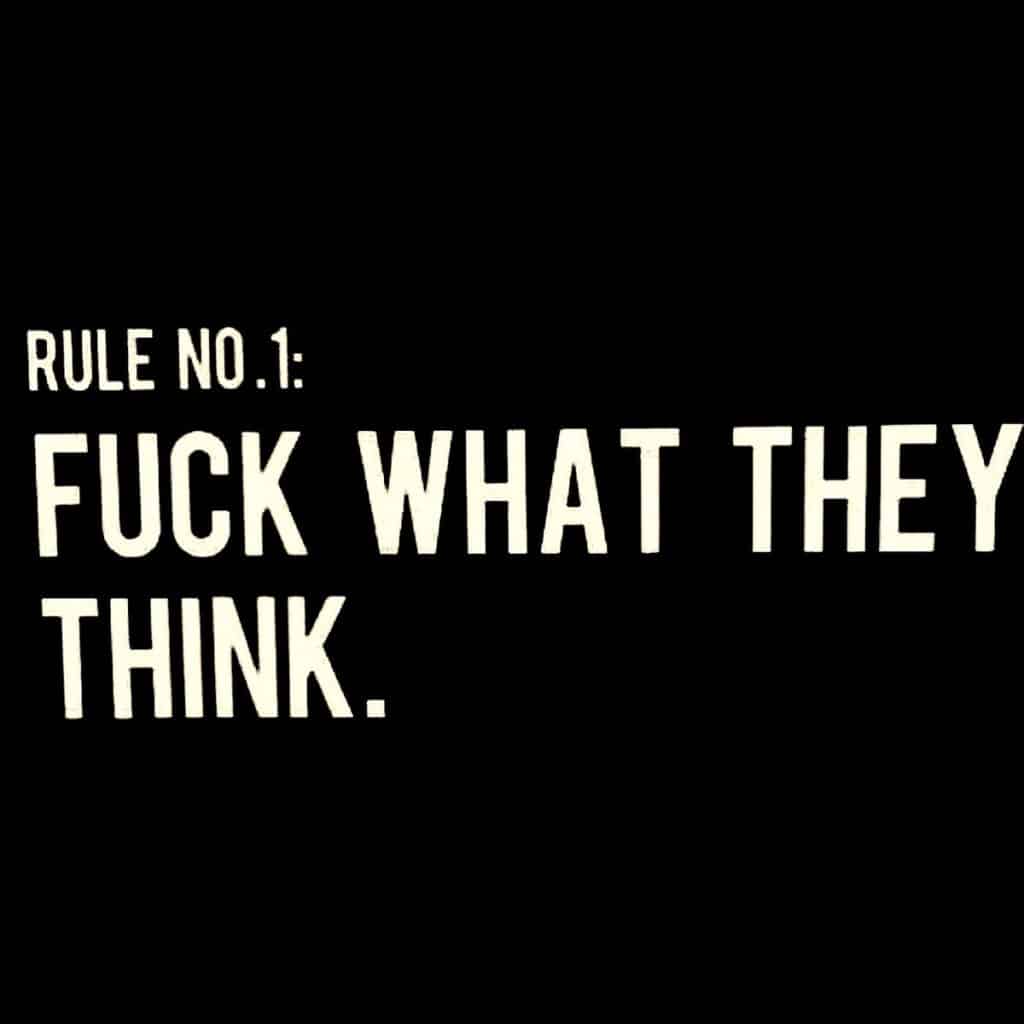
3. It just takes time…
Self-awareness is one of the most powerful words in our language, and yet it’s something that we rarely achieve.
If anything, we get completely absorbed into our thoughts and sensations, unable to escape from them long enough to actually see what’s going on inside ourselves. You might think this is a bit dramatic for such a simple concept, but let me explain:
Many people spend so much time and energy trying to outwardly figure out everything around them while simultaneously neglecting their inner selves. They spend decades living life without truly understanding themselves or how they work.
Mihaly Csikszentmihalyi wrote about this phenomenon in his book Flow: The Psychology of Optimal Experience, where he discusses the relationship between self-awareness and optimal experience. According to Csikszentmihalyi, having a clear sense of one’s identity is an important part of finding true satisfaction in everyday life.
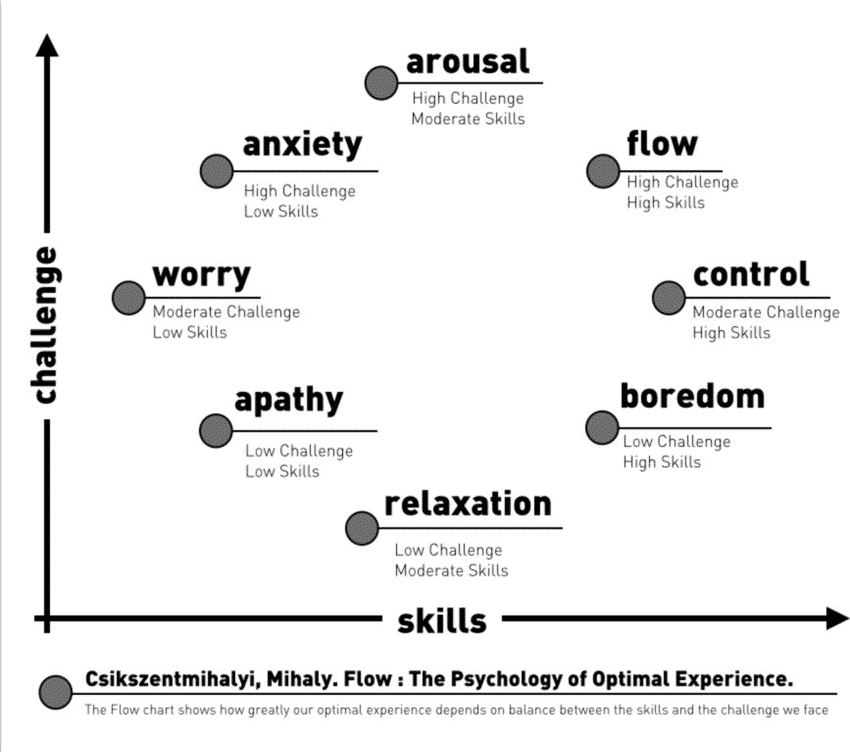
Self-awareness doesn’t have to be something that only psychologists understand. Everyone can learn how to work with their thoughts and emotions if they put in the time, but it may seem difficult at first because self-awareness takes patience.
When I began my journey of learning how to be more self-aware, I didn’t see any tangible results for months. But the funny thing was I knew things were changing on the inside even though it wasn’t obvious on the outside.
It all starts by taking some time each day for yourself. No distractions or multitasking. Sit down, close your eyes, and pay attention to what you’re thinking and feeling.
Simply notice whatever it is that’s going on inside yourself without trying to change or judge it. It can be easy to feel like we ‘shouldn’t’ be thinking about certain things, but we need to drop those judgments if we want to grow in self-awareness.
Be mindful of the thoughts and emotions that show up while you’re working on this practice for a few minutes each day—following your breath and paying attention to how it feels as you breathe. Notice whether there are any sounds outside that you can tune into…
Tune into any tastes or smells around you.
Notice physical sensations such as the weight of your body against whatever you’re sitting or lying on.
Simply acknowledge whatever thoughts, feelings, sounds, tastes, smells, and physical sensations are present in the moment without evaluating whether they are good or bad.
It will be tempting to judge yourself for having certain thoughts or feelings—or to feel like you shouldn’t have them—but this is where patience comes into play.
If you judge your thoughts they will only get stronger, but if you can let them be through the practice of patience then they will begin to dissipate gradually on their own.
This is a process that takes time because we often spend decades caught up in our heads creating stories about who we think we are…
To begin seeing things more clearly and expanding our capacity for self-awareness, it’s important to start with baby steps.
If you feel like meditating is too ‘out there for your personality then try setting aside five minutes every morning to just sit quietly and be. However, if five minutes feels like an eternity then do whatever works for you—even if it’s only a minute or two.
During this time of self-reflection simply direct your attention inward. You’re going to have a lot of thoughts and emotions show up, but don’t worry about any of that right now.
Simply follow your breath while turning your attention inwards. Tune into the physical sensations in your body.
No matter what shows uptake refuge in being present. It doesn’t matter how many times uncomfortable thoughts or feelings arise because you always have this moment right now to keep going.
You’ll find that being present is so much more fulfilling than any other activity you could be doing in the world—but it’s only as fulfilling as you allow it to be.
If you hold your thoughts and emotions captive through judgment or resistance then they will continue to run rampant, but if you let them be without clinging to them then they no longer have a grip on your sense of self-awareness…
Remember, patience is a virtue because there’s no way that we could force our inner selves into clarity before we’re ready for it.
Be patient with yourself and know that although it may take some time for you to understand yourself better, the journey will be well worth the effort… Pay attention to what you’re feeling at the moment…
Don’t judge yourself for whatever thoughts show up—simply allow them to be without getting swept away by them…
Tune into any physical sensations in your body—both pleasant and unpleasant…
Keep returning to whatever it is that you’re doing when practicing self-awareness
Now that you know the challenges that you may encounter when you’re trying to become self-aware…
It’s now time to learn the significance of becoming one, and why it’s so important to your personal growth.
Keep reading.
Chapter 3:
Why You Need to Be More Self Aware
The self-awareness movement has been growing steadily in recent years.
The Me Too and Time’s Up movements have made it clear that we need to change the way we treat ourselves, but what does this mean?
How can you be more self aware?
And why is it important?
This chapter will answer these questions. It’ll also discuss why being more self aware is so important, especially given the current climate of our society.

The Importance of Self Awareness for Your Personal Growth
Are you living your life or is your life living you? Have you ever had a moment where you felt like something was missing and that if only more of this…and less of that; then maybe it would be perfect.
Perhaps the only things standing between you and contentment are those few inhibitions that hold your passions back.
You see, we all have our internal struggles, desires, and longings that we wish to fulfill but usually never do because we settle for what we already have even though we know deep down we deserve so much better.
The thing stopping us from finding our true potential is not someone else or anything else outside ourselves: rather, it’s the one person who everyone has on them at all times: themselves.
Self-awareness is an essential piece of the human experience. Without it, we’d all still be floundering around aimlessly without a clue as to what we’re supposed to do with our lives.
It’s knowing who you are and being okay with that person, even if they aren’t rich or popular or attractive enough according to society’s standards or others’ expectations for you.
You need to realize that your life is worth fighting for and there is something everyone has deep down inside of them that makes them special and unique from everyone else on this planet which creates the potential for greatness.
Self-awareness is not an easy task to accomplish because living in a society that places so much emphasis on the exterior makes it very difficult to ignore what everyone else thinks of you.
Nevertheless, it should be your absolute priority because if you don’t know yourself, then how do you expect anyone else to?
Remember, you are not your ego.
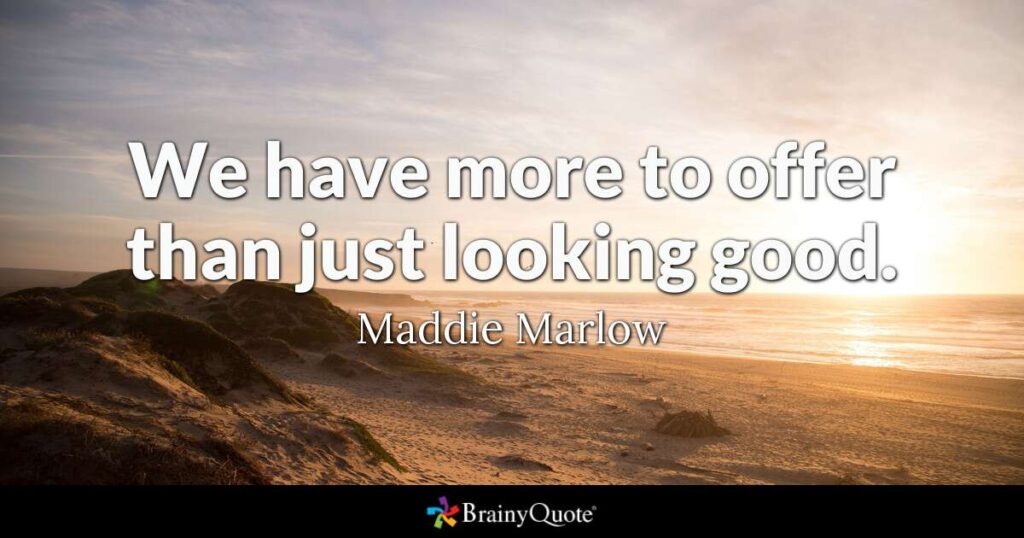
You are not just your physical being that all others see from without—you also have an internal being that only exists in the mind.
The inner self is composed of thoughts, feelings, needs, desires, and dreams. If I were to ask you what makes up “your” identity, chances are you’d probably mention something about how you look or what job you have, or where you live.
This is your ego talking because these are the things society deems as important so it’s what people tend to think about when they envision their perfect selves.
Ego-centrism dictates that if one does not have these external features, then they are nothing but a failure in life—it preys upon our inherent need for approval from others and makes us feel unworthy of being loved which can lead to depression.
From early childhood, we are fed lines like “you’re such a pretty girl!” or “you’re such a handsome boy!” without any regard for whether or not that praise was warranted.
We grow up under the impression that we need to be attractive and fit a certain standard to be worth anything. Unfortunately, this mindset is deeply ingrained into our society and can cause some major problems later on in life if we’re not careful about how we perceive ourselves.
In truth, your looks have nothing to do with who you are as a person…they are just traits that make up your physical self—the part of you that everyone else sees from without.
What happens on the inside is what truly matters because those things make up the internal being which is inseparable from who you are as a person. So saying “I’m an Asian woman” or “I’m a Caucasian male” doesn’t tell anyone who you are—it’s merely stating. It doesn’t say anything about what you believe in or your values or goals which make up who you are as a person.
When you base your identity on how others see you, it limits the potential growth of your inner self because no one can truly know everything about everyone else on this planet.
The only way to discover who you truly are is by finding out for yourself. No one can do that except for yourself because not even Socrates (arguably the wisest man of all time) could figure out who the “real” he was.
You need to analyze how you feel and think without any outside opinions clouding your judgment because then it won’t be an accurate depiction of who you truly are deep down inside—it will just be another mask made up by your ego.
Being aware of who you are is important because it will give you the strength to rebuild yourself if society ever tried to break you down.
For example, imagine if I was born with blonde hair and blue eyes—if I were to base my perception of myself off that fact (I’m not saying that I would because this is just an example), then I would think that any form of persecution for being different was completely unjustified because “I” fit the standards set by society for what someone should look like…and yet people still treated me as though I didn’t deserve basic human rights.
The only way that sort of imbalance can be fixed is by having self-awareness which allows you to question everything instead of blindly believing whatever you’re told.
When it comes down to it, your identity means nothing—it’s merely a concept constructed by the ego to give you a false sense of pride and superiority over others.
Adopting a self-aware mindset goes beyond understanding how you define yourself though because the point is to know who you are when all external factors are stripped away so that way when someone uses this “definition” against you to break your spirit, they won’t succeed because, at that point, there will be nothing left for them to attack.
It might take some time before you finally grasp the concept of self-awareness but I promise you that once you do, life will become much more fulfilling than ever before.
You’ll no longer be the plaything of society, tossed around by its waves…you’ll be in control of your own life.
Your ego’s grasp on your mind will weaken bit by bit until one day, it finally lets go and you’re left to float freely in this vast ocean that is our reality.
It might seem scary at first but trust me, once you get the hang of it, nothing can stop you—not even death itself.
You are forever more enlightened than everyone else because you dared to challenge yourself—to question everything so that way you could build a stronger foundation for yourself.
Being self-aware doesn’t mean being introverted or shy or anti-social either—it just means thinking about what sets you apart from others, what makes you unique in your way.
Any good art piece is defined by the artist’s brushstrokes and any good person is defined by their actions. It doesn’t matter if society respects you or not for who you are—what matters is whether you respect yourself or not.
You can be whoever you want to be so long as it brings out the “real” you deep down inside—the person that wasn’t influenced by external forces but decided to create themselves…
Chapter 4:
How to Let Things Go
It’s not easy to let go of the past, but it is necessary.
It is self-discipline that allows you to “expel yourself from the island.” She is the key to a great life and without her, lasting success is not possible.
We all have emotional baggage that we lug around with us everyday and if you’re anything like me, you want to know how to be able to just leave it at home.
In this chapter, I will share some tips on how I’ve been able to successfully let things go.

Forgive, But Never Forget. Lessons on Letting Things Go
John F. Kennedy once said, “Forgive your enemies, but never forget their names.”
I can’t think of a more contradictory piece of advice.
To forgive is to release someone from the debt created by his or her wrongdoing. To forget is to erase it entirely from memory.
In her book Forgive for Good , Dr. Fred Luskin writes, “you cannot go through life carrying a grudge because you are too weak to handle it.”
Those who tend to be more forgiving live happier lives overall, not just when they’re in the act of forgiving someone but when they’ve completely let go of that hurt or anger.
The benefits of letting things go include greater resilience in the face of adversity, better mental health outcomes overall.
It isn’t always easy to let go of things that have happened. Perhaps the person who wronged you still has power over your life, or maybe you are just not sure how to move on.
But these five lessons about letting go could help get you started.
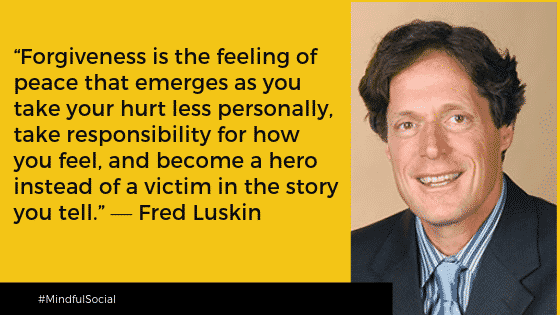
1. Forgive yourself.
I think most people can agree that holding onto guilt is pointless.
You’ve already learned the lesson being taught by your transgression—whatever it was—and dwelling upon it doesn’t do anything except make you miserable and sap your energy (literally).
When many people have done something wrong, there is a reason for it.
Perhaps you made a mistake because of a combination of forces in your life—a stressful week at work, a fight with your parents earlier that day—rather than just one isolated incident. The problem was not your character then and is not now.
Remember, nobody in this world sets out to do something harmful to others, but our own thoughts and actions can be influenced by the negative messages we receive from other sources, like other people.
Sometimes it takes time for our brains to process new information before we think or act differently.
What we were doing before may still appear acceptable or right even though it’s an outdated way of thinking.
So forgive yourself and move on.
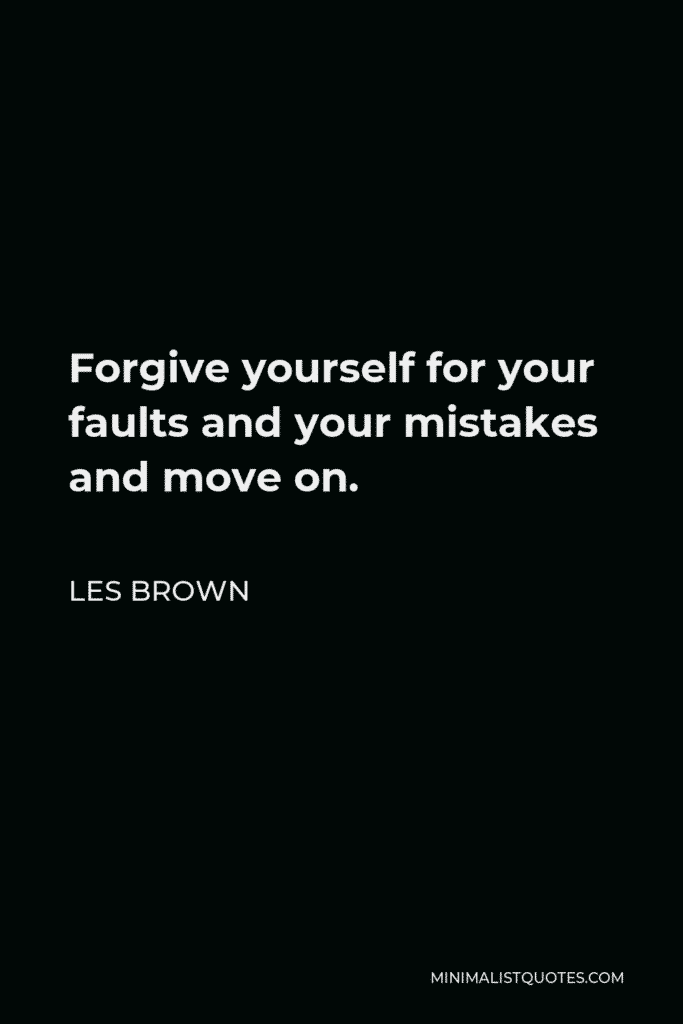
2. Let go of the idea that there is such a thing as “closure.”
The word closure has made its way into our lexicon because it is comforting to think we can wrap up difficult situations and put them behind us.
We like to imagine that if we do everything right, the unpleasantness of life will be over soon, and we’ll finally feel better.
But in reality, things work more like this: you experience something bad; you nurture your wounds with worry and resentment; and then one day you realize that while the pain hasn’t gone away completely, it’s no longer sharp enough for you to cry about every time it comes up.
It was there all along—noticeable but bearable—and now it’s just another part of life.
There’s no such thing as closure.
3. Think about forgiveness as growth—in this case, spiritual growth.
Sometimes we resist forgiving others because we don’t want to let them off the hook for their crimes or mistakes; we hold on to our anger and pain as a way of demonstrating that they haven’t gotten away with it.
Even if letting go feels like you’re losing somehow, maybe you’re actually gaining something by letting go.
Perhaps unloading your resentment is freeing you from emotional baggage that prevents you from growing emotionally.
Forgiveness could be a sign of strength: if you can look past someone’s harmful actions and move on, people will perceive your ability to do so as courage and resilience.
And lastly, forgiveness means you’re not a victim anymore—you’ve taken your life back from someone who tried to control it through fear and intimidation.
This is extremely important if you want to be more self aware as a person.
4. If you have been wronged, try empathy before revenge.
It’s easier said than done, but trying to put yourself in the shoes of the person who did you wrong can help.
Maybe they’ve acted out of ignorance instead of malice, or maybe something tragic happened that made them lash out at others.
When we feel slighted by someone else’s terrible behavior, we want them to know how much pain they caused us.
But sometimes people just don’t know any better.
Authentic apologies are uncomfortable for everyone involved because they require humility—a willingness to be exposed and vulnerable.
When someone apologizes for hurting you, don’t make it about yourself; say “thank you” and leave it at that.
5. Remember that forgiveness is not the same thing as reconciliation.
It’s okay to forgive someone but still choose to keep your distance from them because you’re not ready or willing to trust them again.
Being open with others can put you in a vulnerable position—which is necessary for healthy relationships but sometimes very hard—so do what feels right for you.
Remember, this is all about knowing your worth and becoming self-aware of your feelings and thoughts.
Chapter 5:
How to Cultivate Self-Awareness
It’s hard to be self-aware.
We are our own worst critics, and it takes a lot of courage to look at ourselves in the mirror and really see who we are.
You’ve been criticized for years and it didn’t work? Try to think nicely of yourself and see what happens. (Louise L. Hay)
If you feel too strict with yourself and if you notice that the way you talk to yourself is quite worrying, then it’s time for a change. Admit to yourself that you are at war with yourself.
Many of us think we have to be cruel and critical of ourselves to progress. However, the facts indicate that harsh criticism is demotivating and stressful, and not useful.
It can feel like too much work or that there is no point because how could you change anything?
But being self-aware doesn’t have to be so heavy!
This chapter will walk you through how to cultivate self-awareness so that you can live a more engaged and fulfilling life.

How Do You Cultivate Self-Awareness in Your Life?
Ever felt like you’re in a fog and don’t know what’s going on?
Like there’s this “thing” that’s just not quite right, but you can’t put your finger on it. It could be that you’re experiencing depression or anxiety, or maybe something else.
Whatever the case may be, self-awareness is key to getting back to living life with purpose and meaning. Below are five ways we can cultivate self-awareness in our lives:
1. Journaling.
Journaling provides an outlet for thoughts and feelings, which serves as a reminder of your goals when they might feel lost or forgetful.
It also offers a space for reflection where you can better understand your thoughts and behaviors towards yourself and others.
Research and claims by many psychotherapists indicate that keeping a diary that includes thoughts and feelings about what is happening in our lives helps us deal with everyday problems.
It also helps us meet our goals in the future and see our progress toward meeting them.
It is a place, a safe haven where you can be honest with yourself, express your dilemmas without fear, put your secrets on paper and get rid of negative emotions such as anger, fears and worries, but also record your happy moments, something you want to remember or elaborate in your own way.
Journaling serves to express such content without shame and fear that someone will make fun of us or abuse what we have written.
https://www.youtube.com/watch?v=8ZpJeOQ1HtA
2. Figure out what you want to be self-aware of.
Figuring out what you want to be self-aware of is key to starting your personal growth journey.
Be aware of your needs and find ways to meet them.
Be aware of your virtues and accept yourself despite your flaws.
Take care of yourself through healthy activities such as a healthy diet, physical activity, enough sleep, a tidy lifestyle.
Pamper yourself – fulfill your small and big wishes.
Set boundaries – say NO to work, activities and people that exhaust and damage you physically, emotionally and spiritually.
Protect yourself by limiting or terminating contacts you don’t like.
Nurture close friendships and intimate relationships in which you have a sense of belonging.
Be gentle with yourself by accepting that you are not perfect and forgive yourself for mistakes.
Be aware of your life values and live so that you can affirm them.
These are all a few examples that you could use to inspire you and what you want to be more self-aware of.
3. Prioritize time with friends and family over other commitments.
Do you ever feel like you’re stretched so thin that there’s no room to breathe?
Do you constantly let friends and family down because of your busy schedule?
Do you constantly watch the clock as soon as your free time starts ticking away, wondering where all the time went?
Are you too quick to apologize for missing out on plans or cancelling at the last minute because of a work commitment?
If this sounds familiar, it’s time to prioritize your life.
Start thinking about what really matters in life (remember when we talked about becoming self-aware? Yes, this is it!)
Your health, happiness, and relationships with those close to you.
Here are some reasons why it is necessary.
First off, spending more time with friends and family is going to make both sides happier.
If having a packed calendar leads you to cancelling plans or not being able to show up when you said you would, your friends and family are going to be disappointed.
And if your social circle feels like they can’t rely on you anymore, it could start a downward spiral in your relationships.
When all of life seems almost trivial in comparison to the constant barrage of work pressure that both adults and students face today, prioritizing time with friends and family could help bring back some perspective.
Friendships should never feel disposable-they’re too important for that!
Start including them in more parts of your day, whether it’s a group text, a quick call during lunch break, or planning something fun the next time you have an afternoon free from classes or meetings at work!
Spending time with friends and family also gives you something positive to look forward to.
If your calendar is always jam-packed with work commitments, it can seem like there’s no light at the end of the tunnel.
But if you make plans with your best friend for Friday night, or invite your cousin to meet up during their favorite college football team’s game this weekend, it will fill you with something fresh and new – excitement!
There’s nothing quite like being excited about what comes next in life – so get out there before it passes you by!
Lastly, prioritizing friendships can help open your mind to new things.
People from all walks of life have different interests and hobbies, so you never know what you might learn by hanging out with a friend or relative!
It could be something as simple as listening to a song they love.
A new favorite track is always a great way to start someone’s day off on the right foot! Even if it’s not their usual cup of tea, you’ll both leave the experience better than when you met.
Pay attention to those subtle hints that life sends your way if you take some time out for yourself and realize that there truly is more to life than work commitments.
After all, we should spend more time trying to make ourselves happier than making others miserable… wouldn’t you agree?
4. Try new activities in order to gain different perspectives of life.
Have you ever thought that not staying in your comfort zone is a bad thing?
Have you heard the phrase, “Don’t fix what isn’t broken” before?
If you’re constantly doing what you are used to, then you’re not going to learn anything new. Staying in your comfort zone is fine for a while, but it gets boring after some time.
You need these new experiences to learn more about yourself and gain different perspectives of life.
By putting yourself into uncomfortable situations, you can grow as an individual and become more confident too.
Here is an example: let’s say you love writing and reading, but you have never tried drawing before. What a great opportunity! The next time you are in the art store, buy yourself some sketching pencils and a notebook to draw in. You can turn it into a new hobby or just doodle whenever you feel stressed out!
So if there is something that has been on your bucket list for a while now, try going to a yoga class instead of walking in the park today.
It could be fun!

And when you get home after doing your new activity or hobby, write about what happened inside your journal.
This will make it easier for you to remember everything when looking back at these memories later on.
There is a chance that you will end up loving this new activity and do it all the time.
Remember, being self aware is about exploring new things in a way that you might have never thought possible.
Now that you have the tools to cultivate more self-awareness in your life, it’s time to get to know yourself.
Keep reading.
Chapter 6:
Things You Realize Once You Know Your Worth
I’m sure you’ve heard the phrase “know your worth.”
I don’t think it’s something that can be learned or taught.
You have to experience it for yourself.
It takes time, but if you are patient enough, eventually you will realize what you’re worth and know what is important in life.
In this chapter, I’m going to reveal to you the things that I’ve learned over the years once I know my worth.

Things You Realize Once You Know Your Worth
1. You stop feeling sorry for yourself
You may not understand at some point why something is happening to you, and there might be few cases where it wasn’t your fault at all.
Still, remember the problems of the past.
You will often notice that they have brought you to better places, to better people and situations.
So smile.
Let everyone know that you are stronger today than yesterday, and so it will be.
2. You don’t need anyone’s approval to feel happy
Life is too short to spend time on people who fill you with negative energy.
Some people are simply addicted to draining your energy to make them feel better.
Don’t bother with those who constantly underestimate your value.
Remember that true friends are with you even when you are the worst and can’t stand yourself.
3. You start taking care of your body and modeling a healthy lifestyle
“You’ve got to get up every morning with determination if you’re going to go to bed with satisfaction.” -George Lorimer
Everybody wants to be healthy, but not everybody is willing to put the work into it that’s necessary.
It’s easy for many people to decide they are going to start making healthier choices, but sticking around for more than a few days can be difficult. Once you understand what you are getting yourself into and why it’s so important, though, staying committed will become much easier.
You start taking care of your body and modeling a healthy lifestyle.
The reason why is because your health depends on it, not just in the long term but also in the short term.
Not only will you be in a better mood, but if something does happen in the future, you want to be able to handle it head on with no regrets so that when the recovery comes, you have no troubles keeping up with your recovery plan or any obstacles along the way for that matter.
https://www.youtube.com/watch?v=52lZmIafep4
6. You stop caring about what other people think
When you become self-aware to know who you are, you start seeing yourself in the same way as how others see you – not caring.
You no longer care about what’s going on in their lives, whether they’re friends with someone, or whether they think your hair looks nice today.
7. You become more confident in yourself and your abilities
When you finally realize your worth, you become aware of what you’re capable of doing and you push yourself even harder.
You’re optimistic about the future.
You know what you want to achieve and more importantly, how to achieve it.
It’s important that you become more confident because it will ultimately help you achieve anything that you want in life. Whether it’s becoming friends with someone, landing a new job or even just trying out for sports teams.
8. And finally, your relationships improve because you can be honest with them without worrying about hurting their feelings
When you know your worth and you become self aware, you know what you like and don’t like.
As a result, you now know how to distance yourself from certain things that you dislike, even if it means abandoning your friends who you deem as toxic.
You worry little, because you prioritize yourself above everything else.
Bonus Chapter:
22 Quotes on Knowing Your Worth and Self-Awareness to Inspire You
These are the 22 quotes to inspire you every day, so you can cultivate self awareness
Try to remember some of these and put them into your head every time you face challenges.
Keep reading.

Top 22 Quotes on Knowing Your Worth and Self-Awareness to Inspire You
“Strong people have a strong sense of self-worth and self-awareness; they don’t need the approval of others.” ― Roy T. Bennett
“Know your worth, hold your own power, be you.” – Morgan Harper Nichols
“Know your worth. People always act like they’re doing more for you than you’re doing for them.” – Kanye West
“When you know your worth, no one can make you feel worthless.” ― Anonymous
“Self-worth comes from one thing – thinking that you are worthy.” ― Wayne Dyer
“Self-love, self-respect, self-worth…there is a reason they all start with ‘self’. You cannot find them in anyone else.” – Unknown
“Know your worth. Then add tax.” ― Anonymous
“Your problem is you are too busy holding onto your unworthiness.” ― Ram Dass
“Never settle. Know your worth.” ― Unknown
“To love yourself is to know that your past does not change your worth.”― Unknown
“The most important conversations you’ll ever have are the ones you’ll have with yourself.” — David Goggins
Without self-awareness we are like babies in the cradles. ― Virginia Woolf
Self-awareness is not just relaxation and not just meditation. It must combine relaxation with activity and dynamism. Technology can aid that. ― Deepak Chopra
Self-awareness is the ability to take an honest look at your life without any attachment to it being right or wrong, good or bad. ― Debbie Ford
Self-awareness is one of the rarest of human commodities. I don’t mean self-consciousness where you’re limiting and evaluating yourself. I mean being aware of your own patterns. ― Tony Robbins
Self-awareness gives you the capacity to learn from your mistakes as well as your successes. It enables you to keep growing. ― Lawrence Bossidy
Self-awareness is not self-centeredness, and spirituality is not narcissism. Knowing thyself is not a narcissistic pursuit. ― Marianne Williamson
Strong people have a strong sense of self-worth and self-awareness; they don’t need the approval of others. ― Roy T. Bennett
By becoming self-aware, you gain ownership of reality; in becoming real, you become the master of both inner and outer life. ― Deepak Chopra
A degree of self-awareness is extremely valuable… I hope I have that going forward. ― Nick McDonell
It’s disturbing when someone has no self-awareness. ― Mike White
We have self-centered minds which get us into plenty of trouble. If we do not come to understand the error in the way we think, our self-awareness, which is our greatest blessing, is also our downfall. ― Joko Beck
Conclusion
You are so worth it.
So live your life with the knowledge of how amazing you really are, and know that there is a lot to be thankful for in this world.
Know what makes you happy and do as many things as possible to cater towards those needs.
And if anyone ever tries to tell you anything different from these words, let them go because they don’t have all the answers anyways.
Self-esteem above all teaches us that we should never strive for perfection.
Gaining self-awareness means looking at yourself with your own eyes, not through other people’s eyes.
So know your worth.
Be more self aware.
Because the world needs more people like you.




